How the British tried to occupy Turkestan and the Caspian region
On the other hand, the British planned to use the death of the Russian Empire in order to expand their sphere of influence and finally oust the Russians from the southern regions. The British gradually put under their control all of Persia (Iran), where previously Northern Iran was in the sphere of influence of Russia, and Southern Iran was in Britain. The British planned to use the weakening of Russia to implement their plans of conquest in the Middle East, in Central Asia. Their goal was to capture the strategically important territories of the Black Sea and Caspian basins, to create a continuous communication line - from Constantinople and the Black Sea straits, along the coast, through Iraq, Iran, Transcaucasia, the Caspian Sea, Turkmenistan, Bukhara - to Afghanistan, India and China. Finally, the British were interested in the raw material reserves of Azerbaijan and Central Asia, mainly oil and cotton.
The implementation of these plans was entrusted to London by the “British military mission in Turkestan” created after the February Revolution, headed by Major General William Malleson (R. Tig-Jones, Ward, Jarvis, etc.). From August 1917 in Mashhad (Northern Persia), the mission established contacts with the Turkestan bourgeois nationalists and clerical-feudal circles, as well as with the governments of Bukhara and Khiva. After the October Revolution, the mission became the main organization and leading center of all anti-Soviet forces in Turkestan (Central Asia).
The British supported the Kokand autonomy by providing monetary assistance in the amount of 500 thousand rubles; armed and prepared the army of the emir of Bukhara. At the beginning of 1918, with the help of the agents of the Malleson mission, the Turkestan Military Organization (TVO) was created to unite all the counter-revolutionary forces and launch the struggle for the overthrow of Soviet power in Turkestan. Using the ideas of Pan-Islamism and Pan-Turkism, playing on national and religious feelings, the British agents supported the forces that were striving for the separation of Turkestan from Soviet Russia.
After the elimination of Kokand autonomy in February 1918, the British, under the pretext of protecting the interests of Great Britain from the threat from Germany and Turkey, began to transfer their troops from India to Northern Persia, bordering the Transcaspian region. Under the leadership of the British, in July 1918, the Social Revolutionaries, Mensheviks, Turkestan nationalists and Russian White Guards raised the Askhabad insurgency, seized the Transcaspian region and created the Transcaspian Interim Government (SGP). 26 July 1918, the Trans-Caspian government appealed to the British with a request to send military assistance. July 28 from Mashhad to the Art. Bairam-Ali, where ZVP troops were entrenched, the English machine-gun crew arrived (20 people). On August 12 crossed the border at Artyk station (100 km southeast of Askhabad) the 19 th battalion of the Punjab and several companies of the Yorkshire and Hampshire infantry regiments, the 28 th cavalry regiment and the 44 squadron light inscription team in the same year, in a row, I applied to the I and I, I’m still in a position of other points on the Transcaspian Railway. Krasnovodsk, occupied by the English garrison (about 700 people), became the base of the invaders. Malleson was stationed in Ashabad with its headquarters.
14 August 1918, an English military diplomatic mission arrived in Tashkent, consisting of Bailey, Blackker and the former consul general in Kashgar (North-West China) D. McCartney, whose official goal was to establish a relationship with the government of Soviet Turkestan. The mission contacted the Shura-i-Ulema (the organization of the Muslim clergy, the feudal lords and the national bourgeoisie) and the Basmachis and actively supported the activities of the TVO. The organization of the rebellion and the leadership of the Basmachis were entrusted to the TVO, while the British pledged to supply it weapons and money, and then give support to the troops. The plans of the British was the formation of the "Turkestan Democratic Republic" under the control of Britain. The British provided Basmachi 100 million rubles, 20 thousand rifles, 40 machine guns, 16 mountain guns and several million rounds of ammunition. In Mashhad, a detachment of sipahs consisting of 500 people with machine guns was preparing to support the insurgency.
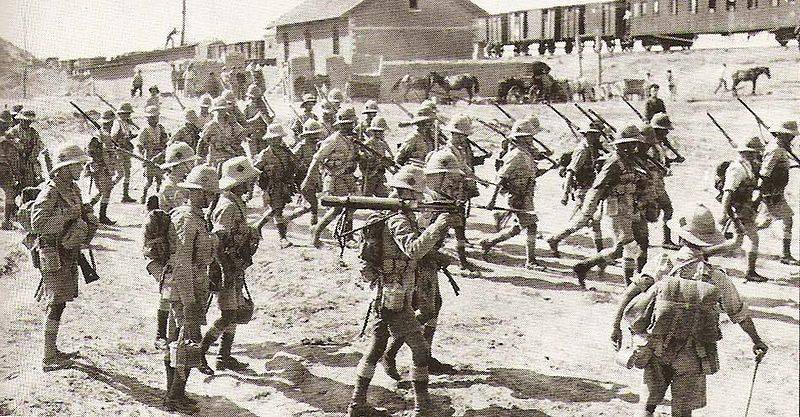
British troops on their way to Baku. 1918
19 August 1918, the Transcaspian Provisional Government signed an agreement with Malleson, which virtually completely brought the Transcaspian region under the control of the British. The SGP was obliged to fight against the Bolsheviks, to ban the export of cotton and to transfer all its stocks, as well as the entire Caspian fleet, the port of Krasnovodsk and the Transcaspian railway of Great Britain, for which he was promised financial and military-technical assistance. The British controlled the shipping on the Caspian Sea and the Cheleken oil fields, took metals, jewels, oil, cotton, wool, carpets, foodstuffs, factory equipment, railway rolling stock and more. A branch of an English bank in Askhabad has made huge sums, accepting deposits from the population in exchange for fictitious obligations. The enterprises nationalized by the Soviet authorities were transferred to the former owners. The losses caused by the British occupation forces only to the mining and irrigation facilities of the region, according to Soviet sources, amounted to over 20 million rubles in gold. The slightest manifestation of protest or discontent on the part of the population was mercilessly punished. Until January 1919, the Transcaspian government received from England 15 million rubles in liabilities and 2 million rubles in cash, about 7 thousand rifles, several million rounds of ammunition and various military equipment; in turn, the Transcaspian government handed over food supplies to 12 million rubles to British troops.
Malleson’s mission developed a plan for the capture of Turkestan by a concentric attack on Tashkent by British and White Guard troops from the Transcaspian region, Orenburg white Dukov from the Aktobe city, Junaid Khan detachments from Khiva, Bukhara emir troops, Semirechie white cossacks and Ferghana basmachis. The offensive was to be supported by internal insurrections, which were prepared at various points of the region by members of the Malleson mission in collaboration with the American consul in Tashkent R. Treadwell and agents in the American Red Cross and the Association of Christian Youth. They also conducted preparations for the military intervention of Austro-Hungarian and German prisoners of war in Turkestan (more than 30 thousand people).
5 September 1918 CEC of the Turkestan Soviet Republic began a partial mobilization. September 17 The National Commissariat for National Affairs appealed to the workers of Turkestan to stand up for the defense of the Motherland against the British invaders. Began the formation of military units from the local population. 9 OCTOBER AREA The 1918 guns, the 28 armored train and the 760 plane launched an attack on the positions of the Soviet troops (300 bayonets, 40 sabers, 12 machine guns, 1 guns and 1860 aircraft) in the area of Art. Dushak (southeast of Askhabad). The interventionists and their allies defeated the Soviet troops and occupied the station.
Transcaspian region in 1900 year
In the same period, the British began penetration into the Caucasus. In January 1918, the British military expedition of General Densterville was sent to the Iran-Transcaucasian border. The British command officially stated that the purpose of this operation was to fight the Turks and Germans, but in reality it was an anti-Soviet intervention, a predatory expansion with the task of capturing the oil wealth of Azerbaijan. The expedition traveled by truck from Baghdad, through the western provinces of Iran, and in mid-February arrived in Anzeli. There the British began to form a military flotilla. The commander of the British naval forces was Commander Norris. The task of creating a flotilla in the Caspian was facilitated by the presence of British ships on the Tigris River. The British could not transport gunboats to the Caspian Sea. But they could remove marine guns of caliber 152, 120, 102, 76 and 47 mm. The British captured several Russian merchant ships in Anzely and began to arm them. At first, the crews of the ships were mixed: the Russian mercenary crew and the British artillery, officers, and Russian naval officers were also taken to secondary posts.
Dunsterville entered into negotiations with the Baku leaders (where the Social Revolutionaries, Mensheviks and Dashnaks prevailed - Armenian nationalists), who expressed their readiness to accept British aid. In early August, the 1918 squad of Dunsterville arrived in Baku. Having seized the ships of the Russian Caspian flotilla, the British secured the sea communications connecting Eastern Transcaucasia with Persia. However, in September 1918, the Caucasian Islamic Army Nuri-Pasha (based on Turkish troops) captured Baku. The British, not having serious military capabilities, fled by ship to Enzeli. In November, 1918, after the capitulation of Turkey, the British, led by General V. Thomson, returned to Baku again, and then occupied all of Transcaucasia. The total number of Allied forces in Baku was 5 thousand soldiers.
By order of General Thomson, martial law was imposed in Baku. The British command took all the administrative authority in the city and region. All executive and judicial power was concentrated in the hands of Thomson. The British seized all the merchant ships of the Caspian fleet. In January-February, 1919, at the point of the British ships, the teams of the Russian military of the Caspian Flotilla were completely disbanded. For nine months, from December 1918 of the year to August 1919, the British took out from Baku to 30 million pounds of oil in the amount of 113,5 million rubles.
English auxiliary cruiser "Zoroaster"
Oil President Schooner Kruger (built in 1902 year) - the future flagship of the British flotilla
Hydroatransport "Aladir Useynov"
18 November 1918, the British ships landed troops in Krasnovodsk. British General D. Milne reported to London in the War Department: “The possession of Krasnovodsk was very important, as the only port free of ice throughout the year. At the same time, it was the final destination of the Central Asian Railway. Owning the port, it was also possible to maintain communication between the two groups of British troops in Persia: the forces commanded by Brigadier General Batman-Champaign, and in the Ashgabat region, General Malleson's group. This group, based on India, was transferred from Mashhad to Ashgabat. From there, her troops were sent to the Merv area to prevent the Bolsheviks from advancing from Tashkent in the direction of the Caspian Sea. ”
On January 13, 1919, the British occupied the city and port of Petrovsk (Makhachkala). There were two Anglo-Indian battalions stationed there. To the north of Petrovsk, on the island of Chechen, the British set up their base aviation. This base was used by the British for raids on Astrakhan and the bombing of ships of the Soviet Volga military flotilla there. Thus, the British put under control howling all the ports of the Caspian, except Astrakhan. British pirates captured 147 merchant ships, most of the Caspian merchant fleet. Some of the ships (about 20) the British introduced into their military flotilla. The rest were formally returned to private owners, but placed their “controller” over the “Shipowners Council” and tried to manage all cargo transportation on the Caspian Sea.
The British military flotilla led active operations against the Bolsheviks. So, 29 December 1918, the ships "Glory", "Venture" and "Asia" destroyed warehouses in Staro-Terechnaya with artillery fire, sank several loaded barges and seized the red hospital ship. At the end of 1918, the first British torpedo boats arrived in Baku by rail. The largest Caspian vessel Volga (former tanker Aleidar Useinov) was chosen as the floating base for all six British torpedo boats. At the beginning of the 1918 of the year, the British also acquired hydro-aviation. The first batch of seaplane under the command of D. Norris was sent by truck from Baghdad to Enzeli in the summer of 1918. Then the people and equipment were loaded onto the flagship “President Kruger” and sent to Petrovsk. The second batch arrived in Enzeli in September and was also sent to Petrovsk, where they decided to create a seaplane base. Subsequently, the Batum-Baku railway was used to transport the aircraft. As carriers of hydroplanes, passenger and passenger ships "Eaglet" and "Volga".
In order to unite the anti-Soviet forces, the British created the Caucasian-Caspian Union, which included counter-revolutionary governments in the Terek, Dagestan and Trans-Caspian regions. Convinced of the failure of the VEP, Malleson at the beginning of 1919 of the year replaced it with the Committee of Public Safety, which was formed from the Turkestan nationalists. In fact, the military dictatorship of the English invaders was established, with the help of which Denikin's appointees established themselves in Transcaspia. The formation and arming of the White Guard Turkestan army and the Basmachi detachments was carried out, new counter-revolutionary actions were being prepared.
The liberation of Orenburg (22 in January of 1919) and the restoration of railway links with Turkestan allowed Soviet Russia to provide more material and military-technical assistance to the Republic of Turkestan. In March, 1919, by decision of the government of the RSFSR, all foreign consuls, as well as American representatives, were expelled from Turkestan. The British began to withdraw their troops from the Transcaspian region to Iran (until August 1919, only the English garrison in Krasnovodsk remained in the region). The leadership of the armed forces in Transcaspia passed to the command of the Armed Forces of the South of Russia (Denikinians). In May 1919, the Soviet troops launched a decisive offensive on the Trans-Caspian front. On May 21, after a stubborn battle, the Bairam-Ali station was taken, followed by Merv and Tedzhen. July 8 Red Army units occupied Ashgabat.
After the withdrawal of British troops and the defeat of the anti-Soviet underground, the British relied on the Emirate of Bukhara, where British instructors were preparing for an offensive against Soviet Turkestan 40-thousand. army, as well as the Denikin Turkestan army. In 1919, the British sent 2 caravans of 600 and 200 camels with weapons, ammunition and other military property to Bukhara, and in January 1920, 1200 rifles, 12 machine guns, 4 guns and a large number of ammunition and shells. After the elimination of the Denikin troops in the Transcaspian and Bukhara emirate (in 1920), the British provide assistance to Basmachi. For a long time, the British supplied the Basmachis with weapons and money, formed from them on the territory of Afghanistan and Iran, armed detachments that made robber attacks on Soviet territories, used them for reconnaissance and sabotage.
Thus, the plans of England (and the whole of the West) for separation of Turkestan and the Caspian region from Russia failed. Having restored statehood in Russia, Soviet power returned to Russian great-power politics and secured Turkestan, began to consistently strengthen Russian positions in the global South.
The British had to withdraw troops from Russia. The reasons for this still 16 January 1919, the British Prime Minister Lloyd George, said well at a meeting with the French: “The situation in Russia is very bad. It is not known who takes it up, but the hope that the Bolshevik government will fall has not been justified. Even if the message is that the Bolsheviks are now stronger than ever, that their internal situation is strong, that their influence on the people is stronger now ... But to destroy it with the sword ... this would mean the occupation of several provinces in Russia. Germany, with millions of people on the eastern front, kept only the edge of this territory. If we now send a thousand British soldiers to Russia for this purpose, they would rebel ... The idea of destroying Bolshevism by military force is insane ... A military campaign against the Bolsheviks would have made England Bolshevik and would bring London to the Council. ”
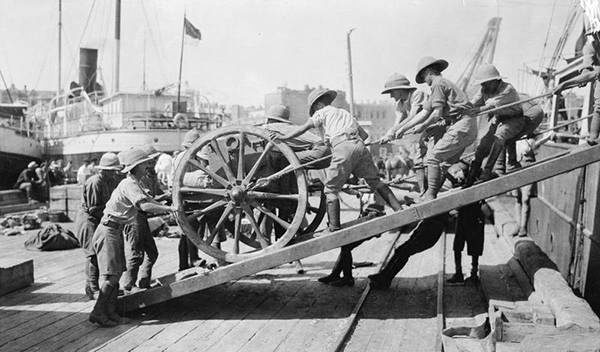
Unloading British guns in Baku
- Alexander Samsonov
- Smoot. 1918 year
How to create a volunteer army
How the battle for the Don began
"Your talk is not needed by the working people. The guard is tired!"
100 years of the Workers 'and Peasants' Red Army and Navy
Who incited the Civil War
White fought for the interests of the West
Anti-Russian and anti-state white project
How "Ukrainian Chimera" incited the Civil War
How to create Ukraine and the "Ukrainian people"
How the red took Kiev
Victory of the Red Army on the Don
Bloody Battle of the Ice Campaign
How Kornilov stormed Ekaterinodar
Destined to die? Died with honor!
People against power
How Drozdovtsy broke through on the Don
How drozdovtsy stormed Rostov
Don Republic Ataman Krasnov
West helped the Bolsheviks?
Why did the West support both red and white?
Why do Czechoslovak murderers and looters erect monuments in Russia
Second Kuban campaign
Eastern Front Education
Why did they kill the Russian tsar?
Rise of the Left Social Revolutionaries and its weirdness
How white occupied the capital of Kuban
Bloody battle for Yekaterinodar
Kappelevtsy take Kazan
"For the Soviets without the Bolsheviks"
The landing of the British in Arkhangelsk. Formation of the Northern Front
The heroic campaign of the Taman army
Why tried to kill Lenin
Soviet republic turns into a military camp
How terror flooded Russia
The first battle for Tsaritsyn
Red Army beats off Kazan
Transcaucasian massacre
How the Caucasian Islamic Army stormed Baku
The second battle for Tsaritsyn
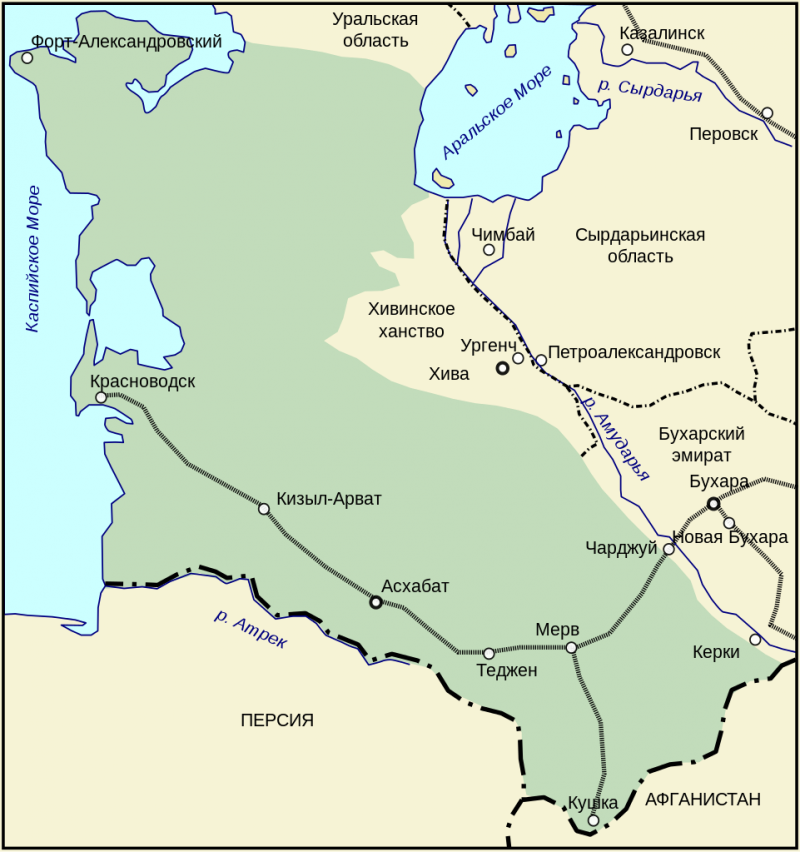
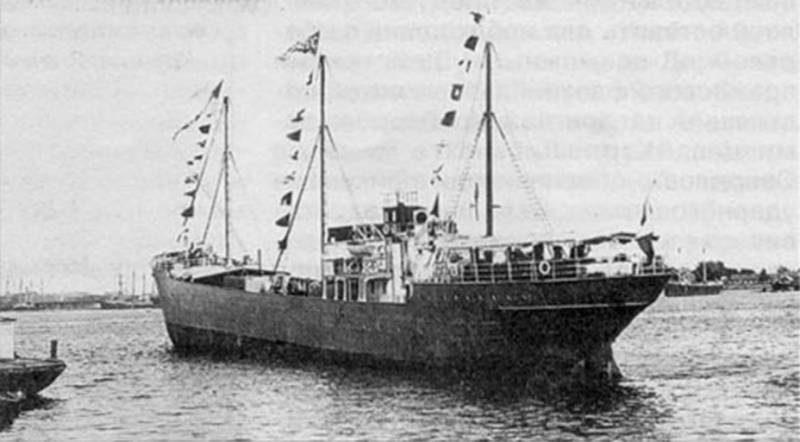
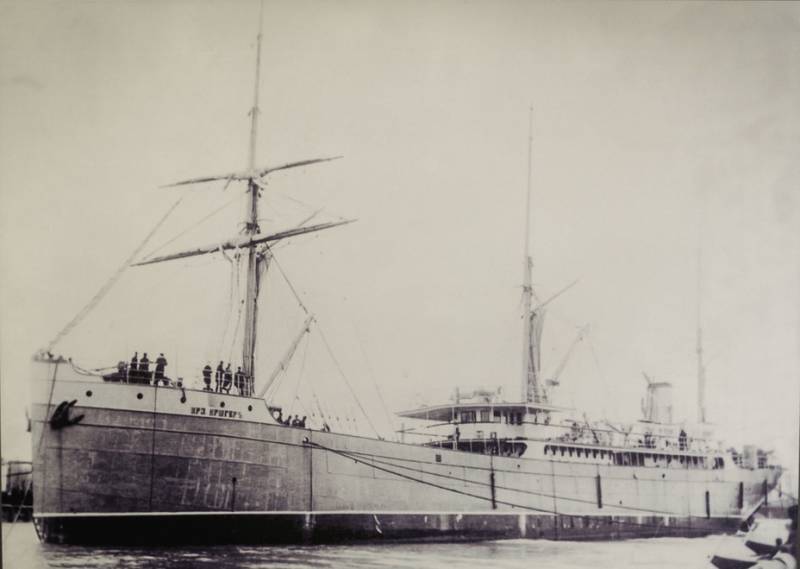
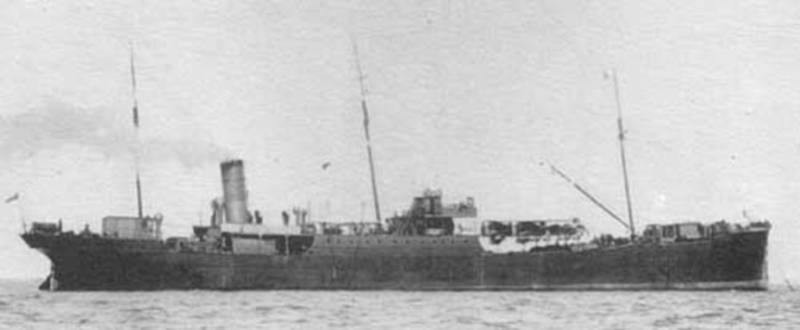
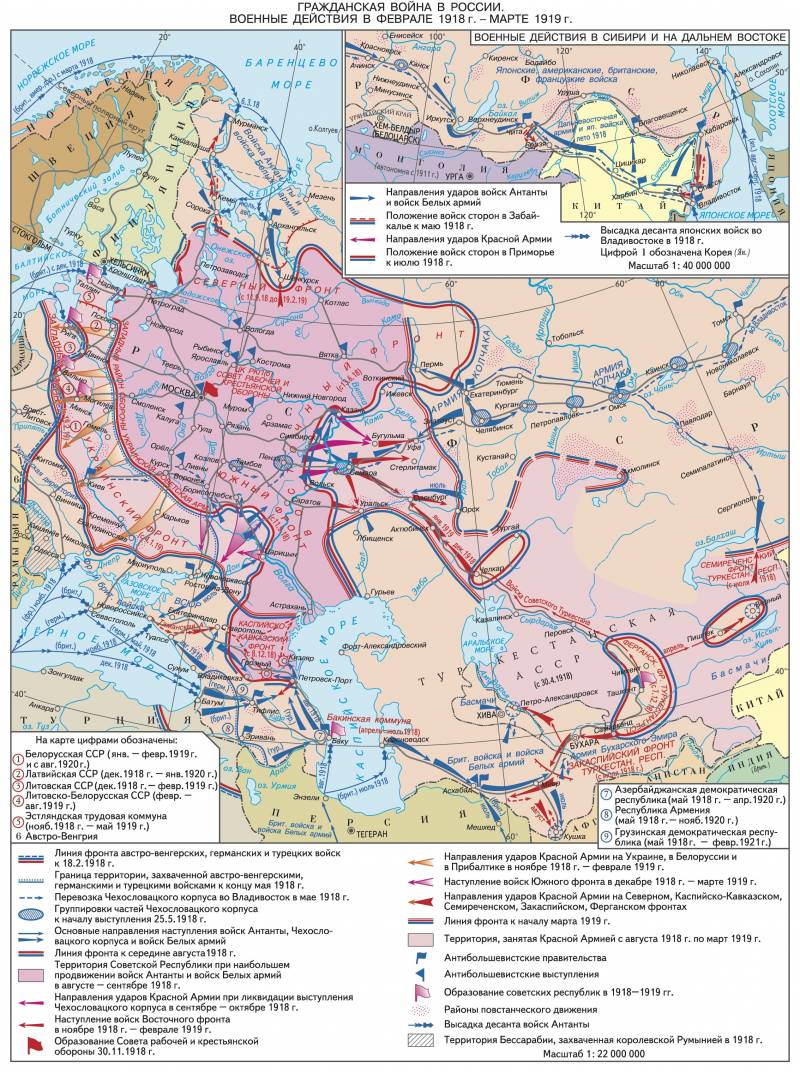
Information